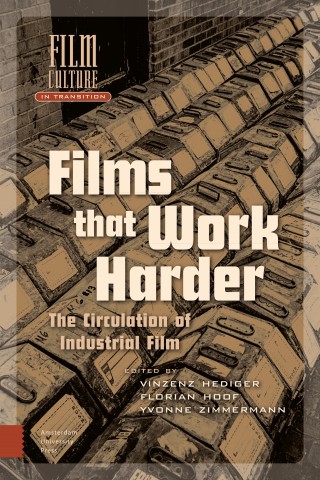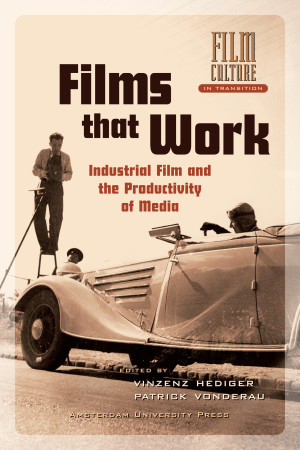Only available in hardback:
ISBN 978 90 8964 012 3The history of industrial films – an orphan
genre of twentieth-century cinema
composed of government-produced and
industrially sponsored movies that sought
to achieve the goals of their sponsors,
rather than the creative artists involved –
seems to have left no trace in filmic cultural
discourse. At its height the industrial film
industry employed thousands, produced
several trade journals and festival circuits,
engaged with giants of twentieth-century
industry like Shell and AT & T, and featured
the talents of iconic actors and directors such as Buster Keaton, John Grierson
and Alain Resnais. This is the first
full-length book, anthology, and annotated
bibliography to analyse the industrial film
and its remarkable history. Exploring the
potential of the industrial film to uncover
renewed and unexplored areas of media
studies, this remarkable volume brings
together renowned scholars such as
Rick Prelinger and Thomas Elsaesser in a
discussion of the radical potential and new
possibilities in considering the history of
this unexplored corporate medium.

